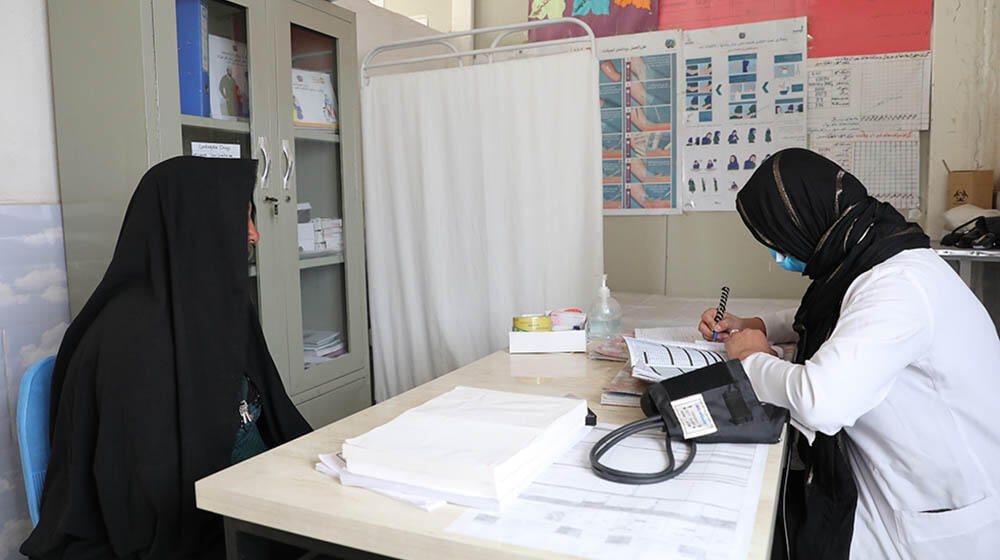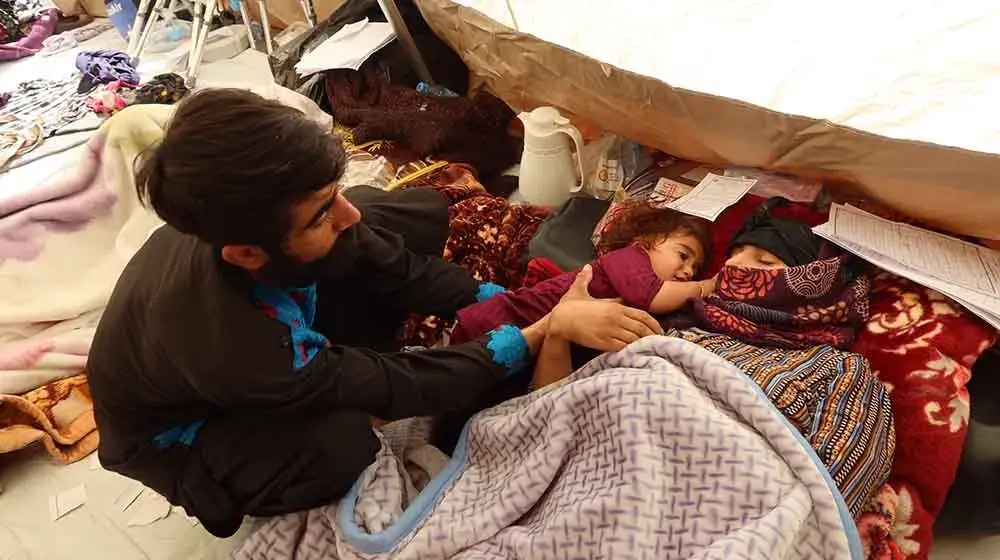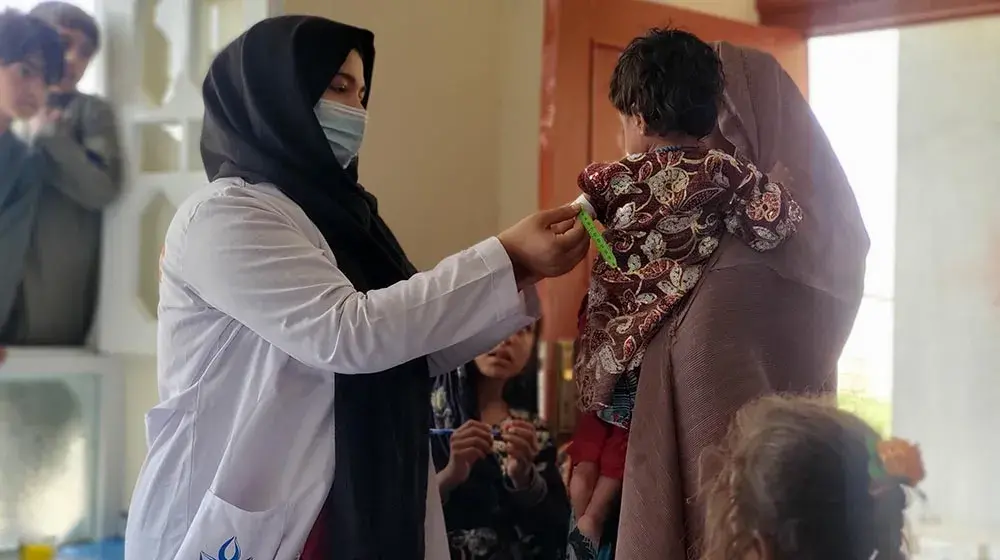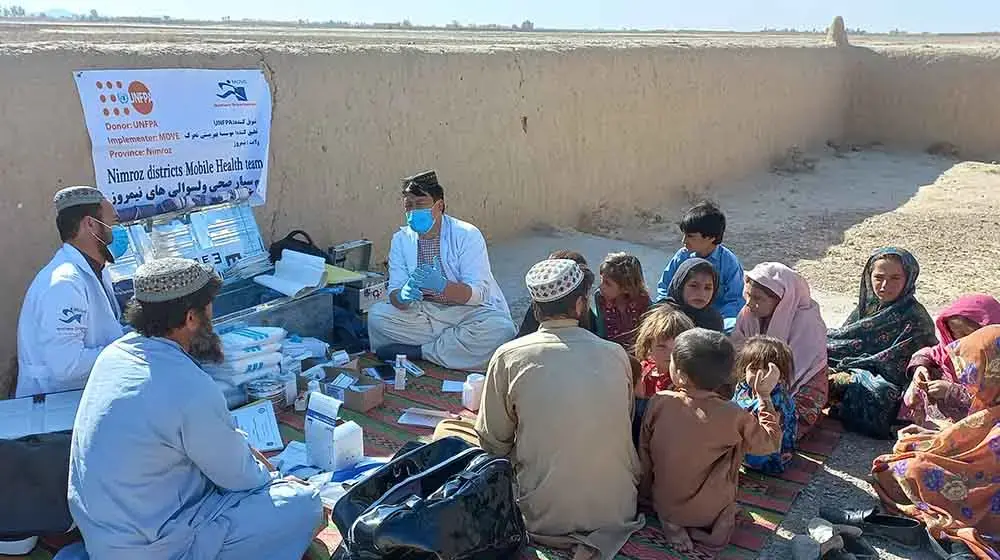Herat, Afghanistan – Thirty-year-old Shamila can now only recall displacement and the difficulties of not having immediate medical help as she takes comfort in the care of the Basic Health Center (BHC) for her pregnancy and impending delivery.
“This center is a special place for me, as it will be the place where I will give birth for the second time,” Shamila said as she visited the BHC for her third antenatal care appointment, feeling reassured by the familiar support she had received during her previous delivery at the clinic.
Shamila’s family were forced to vacate their home in the Bala Murghab district of Badghis province in 2018 due to severe drought. They were relocated to the camp for internally displaced persons (IDPs) in Shahrak Sabz.
The displacement forced Shamila’s family to sell and lose all their possessions, making life difficult for them. Despite the hardship, Shamila remained thankful for a few instances—including the first time she delivered in the BHC supported by UNFPA with funding from the Government of Japan.
“I gave birth to my son here two years ago, and it was the first time I had a midwife assisting me in the delivery,” she reminisced about her initial experience with a midwife.
It was a much more pleasant experience than her previous childbirth just before they left their village. She delivered at home and experienced complications due to obstructed labor and internal bleeding. “I can’t forget those agonizing moments; it was a miracle that I survived without the help of a health professional.”
Now that she is anticipating a new baby, Shamila has learned more about the importance of antenatal care, and she is confident she will be in good hands. The BHC midwife advised her to visit the clinic for checkups regularly and to immediately come to the facility if she experienced pain or signs of labor.
The growing awareness about maternal and reproductive health and the services available through the UNFPA-supported BHC in the IDP camp provided women such as Shamila access to professional maternity care. For complicated cases, the BHC has a system to refer cases to the Herat Maternity Hospital.
Midwife Karima Rahmani said the services offered in the facility have contributed significantly to the well-being of mothers and newborns in the community.
“Births can occur at any time, day or night, so we have midwives on duty even at night,” Karima explained. “Caring for this IDP community is a dedication I share with my colleagues, and we always strive to offer them the highest level of assistance.”





